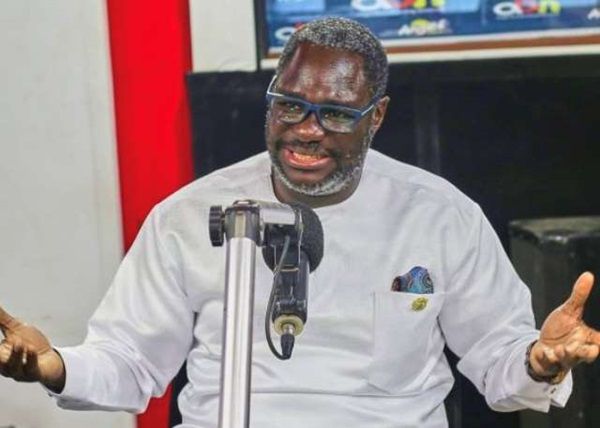A Call for Unity and Reflection within the NPP After Electoral Defeat
The New Patriotic Party (NPP) finds itself in the unfamiliar territory of opposition following its defeat in the 2024 general elections. Former government spokesperson Palgrave Boakye-Danquah has emerged as a voice of unity and resilience, urging party members to maintain their faith in the NPP’s core principles and ideologies despite the electoral setback. He emphasizes the importance of loyalty, not just to the party structure, but to the foundational beliefs that have guided the NPP throughout its history. Recognizing the potential for disillusionment and fragmentation after a loss, Boakye-Danquah stresses the need for inclusivity, welcoming new members who may be drawn to the party and showing grace to those who choose to depart. This call for unity underscores the understanding that a strong and cohesive opposition is crucial for a healthy democracy and for the NPP’s future prospects. The party’s role, Boakye-Danquah argues, extends beyond electoral victories; it holds a responsibility to the Ghanaian people, and maintaining that connection is vital for regaining public trust and support.
The magnitude of the NPP’s defeat is evident in the official results released by the Electoral Commission. The National Democratic Congress (NDC), led by John Dramani Mahama, secured a decisive victory with 56.42% of the vote, significantly outperforming the NPP’s candidate, Dr. Mahamudu Bawumia, who received 41.75%. This margin of victory translates into a substantial shift in the parliamentary landscape as well. The NDC now holds a commanding majority with 183 seats, leaving the NPP with only 88, a stark reversal of their previous majority status. This dramatic change in political power dynamics underscores the need for the NPP to engage in serious introspection and strategic planning for the future.
The task of rebuilding and restrategizing is significant. Boakye-Danquah’s message, therefore, focuses on the long-term vision of the party. He emphasizes the need to regroup and rebuild, acknowledging that the path back to power requires internal reflection, adaptation to the changing political landscape, and a renewed commitment to the values that resonate with the electorate. He highlights the importance of welcoming new members, recognizing that fresh perspectives and renewed energy are crucial for the party’s revitalization. The road ahead requires not just strategic political maneuvering but also a rebuilding of trust and a clear articulation of the party’s vision for Ghana’s future.
While Boakye-Danquah stresses unity and strategic renewal, NPP General Secretary Justin Frimpong Kodua offers a different perspective on the party’s defeat, attributing the loss to spiritual factors. Kodua suggests a widespread apathy among NPP supporters, claiming an unprecedented low voter turnout within the party’s base. He describes this phenomenon as inexplicable through conventional political analysis, suggesting the influence of unseen forces. This interpretation of the election results diverges significantly from the more traditional analyses that focus on political strategy, campaign messaging, and voter demographics.
Kodua’s explanation delves into the realm of spiritual warfare, claiming that the party was targeted by negative spiritual influences. He further alleges that the NPP was abandoned by key religious figures who had previously supported the party, attributing their withdrawal to unresolved grievances and anger. This narrative of spiritual conflict adds a layer of complexity to the post-election analysis within the NPP. It raises questions about the interplay of religious beliefs and political action, and how these dynamics might have influenced voter behavior and the overall outcome of the election.
The contrasting perspectives of Boakye-Danquah and Kodua represent two distinct approaches to processing the NPP’s electoral defeat. Boakye-Danquah’s call for unity, strategic planning, and a renewed commitment to the party’s core principles reflects a pragmatic approach focused on tangible actions for rebuilding and regaining public trust. Kodua’s interpretation, focusing on spiritual influences and the withdrawal of religious support, introduces a more esoteric dimension to the analysis. These differing narratives within the NPP highlight the complex challenges the party faces as it navigates its transition into opposition and charts a course for its future. The ability of the NPP to reconcile these divergent perspectives and forge a unified path forward will be crucial for its ability to effectively serve as an opposition party and eventually contend for power again.


